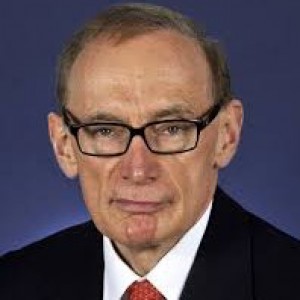West Bank settlements always illegal

ANY confusion about Israel’s settlements in the West Bank can be easily resolved. There is a file in the office of the Israeli Prime Minister that will do it.
The file would be handy for John Kerry as he attempts to broker a peace. It would help Julie Bishop, who told The Times of Israel on January 15 she’d like to see advice that says settlements are illegal.
It was this advice that an Israeli prime minister asked for in 1967. Israel had just conquered what is now the West Bank. Prime minister Levi Eshkol asked Israel’s top authority on international law, Theodor Meron, whether Israel could settle civilians there.
Meron was a child survivor of the Holocaust and has since become one of the world’s leading authorities on the laws of war and a judge on the International Criminal Tribunal for the Former Yugoslavia.
His advice was unequivocal, and today he sticks to it. He said: “Civilian settlement in the administered territories contravenes explicit provisions of the Fourth Geneva Convention.”
When General Moshe Dayan in 1968 proposed building Israeli towns on the West Bank he blithely conceded: “Settling Israelis in administered territories, as is known, contravenes international conventions ... “
Indeed, the Fourth Geneva Convention would appear to leave no room for argument. It states: “The occupying power shall not deport or transfer parts of its own civilian population into the territory it occupies.”
Apologists for settlements try to argue that Article 49 bars the occupier only from “forced transfer” (my emphasis) of its civilians. This is not the interpretation accepted by the International Court of Justice or anyone else. The adjective “forced” does not appear in the convention.
I think I recognise a killer argument when I see one. The killer argument here is that Israel’s own legal authority, at the very start, told its government that settlements were illegal under international law.
It’s curious that supporters of Israel would choose to fight on this ground - their weakest.
When I was foreign minister the Australia/Israel & Jewish Affairs Council directed a furious effort at trying to block even routine criticism of settlements, as if this were more vital than advocating a two-state solution or opposing boycotts of Israel. Settlers themselves shatter all sympathy, as on the ABC’s Four Corners on Monday when Daniella Weiss stated they deliberately had occupied land to block the creation of a Palestinian state because “this land was promised to the Jewish nation by God”.
In Louis Theroux’s BBC documentary The Ultra Zionists, religious settlers declared Palestinians an inferior race. “This is the Jewish homeland and there’s never been a Palestinian people,” declared one, standing on a property formerly occupied by Palestinians. In one blast they defied centuries of priceless Jewish liberal and humanitarian instinct.
No one from the centre-Left of European politics is going to do anything other than repudiate this ultra-religious vision. “The kibbutz used to be the symbol of Israel,” a British Labour MP told me. “Now it’s the settlement bloc.” American Jewry is increasingly detaching itself from what it sees as a chauvinist, illiberal strain in Israeli politics.
Kerry warned Israel last month of the danger of delegitimisation, especially after the EU announced any economic treaties with Israel would carefully exclude - one may say boycott - business activity in Israeli settlements.
I know some supporters of Israel would want to point out that there are a range of settlement categories. My response is to quote Israeli prime minister Golda Meir, who once said: “If you’ve got to explain, you’ve lost already.”
In any case, there is available a far more intelligent defence of Israel. Concede that the settlement mission is controversial within Israel. Point out many Israelis are opposed to the settler vision of a greater Israel indefinitely governing a majority Arab population. Give up any argument that settlements are legal under international law and move on to more fruitful territory.
Insist that liberal democracy and shining economic success - even with constant threat of war - are the chief virtues of Israel, a state where six former heads of its security agency, Shin Bet, can appear in a documentary (The Gatekeepers) and criticise Israel’s occupation of the West Bank, a state where its own Supreme Court can overrule its government on use of torture or the direction of a wall opposed by Palestinian villagers, where historians freely challenge their country’s own foundation myth. Where, as Four Corners showed, its military personnel can speak out against the occupation.
In all these respects, Israel presents a benchmark of pluralism and democracy - a formidable one - for a future Palestinian entity. If Palestinians achieved it, they would set off a challenge to Arab dictatorship and theocracy everywhere and realise their own greatness.
Bob Carr was Australia’s foreign minister from March 2012 to September last year and was NSW premier from 1995 to 2005.To view the article click here